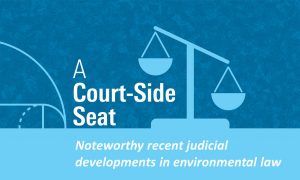 This spring, the National Women’s Soccer League (NWSL), the top professional women’s soccer league in the United States, will kick off its eleventh season of play. It is by far the longest-enduring and most successful professional women’s soccer league in U.S. history, and appears poised for significant growth in its viewership, fan engagement, and financial strength in 2023 and 2024. Savvy investors and entrepreneurs are looking increasingly toward women’s soccer as an area of great potential growth in the coming years, and for good reason.
This spring, the National Women’s Soccer League (NWSL), the top professional women’s soccer league in the United States, will kick off its eleventh season of play. It is by far the longest-enduring and most successful professional women’s soccer league in U.S. history, and appears poised for significant growth in its viewership, fan engagement, and financial strength in 2023 and 2024. Savvy investors and entrepreneurs are looking increasingly toward women’s soccer as an area of great potential growth in the coming years, and for good reason.
Articles Posted in Land Use
A Court-Side Seat: “Inholdings” Upheld, a Pecos Bill Come Due and Agency Actions Abound
Here are some significant environmental and regulatory rulings and administrative actions from December 2020.
A Court-Side Seat: Waters, Walls and Pipelines
Several interesting decisions have recently been made by federal and state courts.
FEDERAL APPELLATE COURTS
The U.S. Seventh Circuit Court of Appeals – ARCO Shifts from State to Federal and No Vigor for VIM
On June 18, 2020, the court decided the case of Baker, et al. v. ARCO, holding that the revised federal removal statutes authorize the removal to federal court of a state-filed complaint against several defendants by the former residents of an Indiana housing complex who contended that the defendants were responsible for the industrial pollution attributed to the operations of a now-closed industrial plant. The housing complex was constructed at the site of the former U.S. Smelter and Lead Refinery. During the Second World War, the plant produced products for the use of the government war effort, thus triggering the applicability of the federal removal statutes.
A Court-Side Seat: Airing It Out in Weymouth, No Reasonable Exception for Mercury and “40 Pages of Very Complex Information”
Last week (June 1-7, 2020), the federal appellate courts released several important rulings.
Town of Weymouth, et al. v. Massachusetts Department of Environmental Protection
On June 3, 2020, the U.S. Court of Appeals decided the case involving the Atlantic Bridge LNG pipeline project which received FERC ‘s approval in July 2017. At issue is the proposed construction of a natural gas compression station in Weymouth, Mass. The MDEP granted the pipeline’s application and granted an air permit. Local opposition resulted in this appeal of the agency’s order. The plaintiffs argued that the DEP violated its own procedures in assessing whether an electric motor satisfied EPA’s BACT Clean Air Act requirements to control NOx emissions. The appeals court agreed that the DEP’s explanation of the cost factors was inadequate, vacated the air permit and remanded the matter to the agency for further proceedings.
Appalachian Trail Pipeline Case Argued before the Supreme Court
 On February 24, 2020, the Supreme Court heard the oral arguments in the case of U.S. Forest Service, et al. v. Cowpasture River Preservation Association, et al.
On February 24, 2020, the Supreme Court heard the oral arguments in the case of U.S. Forest Service, et al. v. Cowpasture River Preservation Association, et al.
On December 13, 2018, the U.S. Court of Appeals for the Fourth Circuit held that the Forest Service was not authorized by the Mineral Leasing Act to grant a pipeline right-of-way under the Appalachian Trail to the Atlantic Coast Pipeline involving a small stretch of the Appalachian Scenic Trail.
With the Rise in Sea Levels, a Rise in “Soft” Coastal Resiliency Approaches
With estimates that sea levels could rise two to six feet over the next century, states are incorporating adaptation and coastal resiliency into their planning and permitting regimes. In “INSIGHT: States Shift From Seawalls to Living Shorelines,” colleagues Eric Moorman and Ashleigh Acevedo examine the different strategies being considered and deployed by coastal states.
Tighter Requirements and a New Penalty for Owners of Vacant or Abandoned Storefronts in San Francisco
 Ordinance 52-19 became effective in April 2019 and expands upon existing San Francisco Building Code registration requirements for “Vacant or Abandoned” “Commercial Storefronts.”
Ordinance 52-19 became effective in April 2019 and expands upon existing San Francisco Building Code registration requirements for “Vacant or Abandoned” “Commercial Storefronts.”
A storefront becomes “Vacant or Abandoned” once it has been unoccupied for 30 days (among other earlier triggers for blighted or unsecured storefronts). A “Commercial Storefront” is broadly defined as “any area within a building that may be individually leased or rented for any purpose other than Residential Use as defined in Planning Code.” (See § 103.A.5.1 of the San Francisco Building Code.) So, a building that is 97% leased could still contain a Vacant or Abandoned Commercial Storefront, which would technically require registration under the Building Code.
EPA Issues Interpretive Statement on Application of NPDES Permit System to Releases of Pollutants to Groundwater
 On Tuesday, April 23, 2019, in a development of interest to practically anyone who operates a plant or business, EPA published its Interpretive Statement in the Federal Register. (See 84 FR 16810 (April 23, 2019).) After considering the thousands of comments it received in response to a February 20, 2018, Federal Register notice, EPA has concluded that “the Clean Water Act (CWA) is best read as excluding all releases of pollutants from a point source to groundwater from a point source from NPDES program coverage, regardless of a hydrological connection between the groundwater and jurisdictional surface water.”
On Tuesday, April 23, 2019, in a development of interest to practically anyone who operates a plant or business, EPA published its Interpretive Statement in the Federal Register. (See 84 FR 16810 (April 23, 2019).) After considering the thousands of comments it received in response to a February 20, 2018, Federal Register notice, EPA has concluded that “the Clean Water Act (CWA) is best read as excluding all releases of pollutants from a point source to groundwater from a point source from NPDES program coverage, regardless of a hydrological connection between the groundwater and jurisdictional surface water.”
Updates to the CEQA Guidelines Have Been Finalized
The California Natural Resources Agency (CNRA) recently posted final adopted text for amendments to the CEQA Guidelines. The result of over five years of development efforts by the Governor’s Office of Planning & Research and CNRA, the amendments are the most comprehensive update to the CEQA Guidelines since 1998. In “Natural Resources Agency Finalizes Updates to the CEQA Guidelines,” Pillsbury environmental attorneys Kevin Ashe and Eric Moorman explore the wide range of issues covered in the amendments, including the new Vehicle-Miles-Traveled (VMT) methodology for analyzing transportation impacts; use of regulatory standards as significance thresholds; environmental baselines; and numerous procedural and technical improvements.
Ninth Circuit Affirms District Court’s Ruling Finding Lack of Redressability for Alleged ESA and NHPA Violations
On June 28, the U.S. Court of Appeals for the Ninth Circuit decided the case of Center for Biological Diversity, et al., v. Export-Import Bank of the U.S., affirming the ruling of the District Court, which granted Export-Import Bank of the United States’ (Ex-Im Bank) summary judgement motion finding that, “as a threshold matter,” the plaintiff environmental groups lacked standing to pursue either of their National Historic Preservation Act (NHPA) or Endangered Species Act (ESA)] claims. On appeal, the Ninth Circuit held “that the action is not moot [but] affirm the district court on the question of standing.”
 Gravel2Gavel Construction & Real Estate Law Blog
Gravel2Gavel Construction & Real Estate Law Blog



